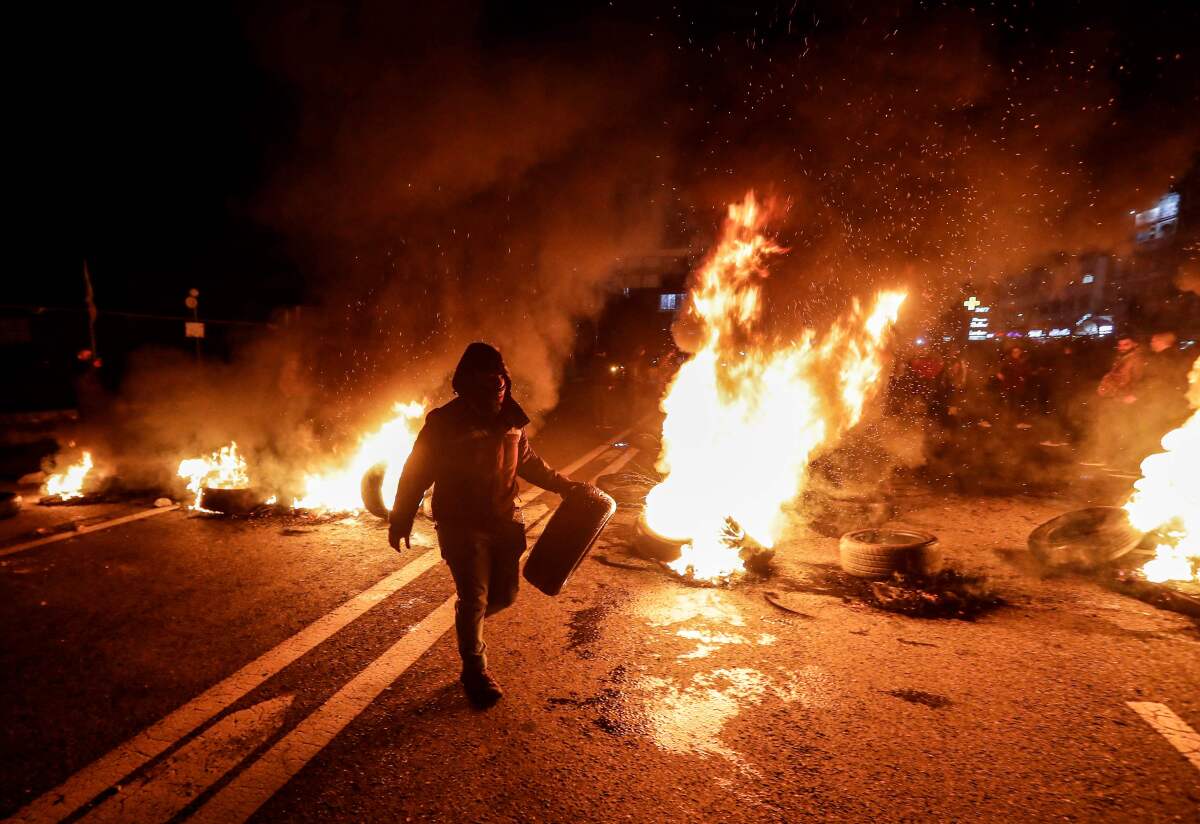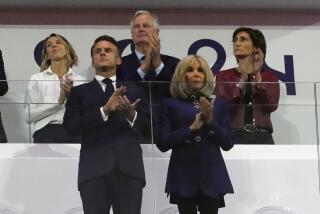New government in crisis-hit Lebanon, but protests continue

BEIRUT — A new Cabinet was announced in crisis-hit Lebanon late Tuesday, breaking a months-long impasse amid mass protests against the country’s ruling elite and a crippling financial crisis, but demonstrations and violence continued.
Prime Minister Hassan Diab, a former professor at the American University of Beirut, announced a Cabinet of 20 members — mostly specialists supported by the Shiite Muslim militant group Hezbollah and allied political parties.
The new leadership, which comes three months after Prime Minister Saad Hariri resigned, was rejected by protesters who have been calling for sweeping reforms and a government made up of independent technocrats that can deal with the country’s economic and financial crisis, the worst since the 1975-90 civil war.
Even before the Cabinet was announced, thousands of people poured into the streets, closing major roads in the capital, Beirut, and other parts of the country in protest. The demonstrators complained that political groups still were involved in the naming of the new ministers, even if they are specialists and academics. Later, a group of protesters near parliament threw stones, firecrackers and sticks at security forces, who responded with tear gas and pepper spray.
“We want a government of experts ... who are they kidding?” said one demonstrator, Fadi Zakour. “We have been protesting for 90 days and we are not happy to close roads,” he added.
Diab saluted the demonstrators in the street and vowed to “work to fulfill your demands.” In a speech addressing the country after the government announcement, he added that his Cabinet is the first in Lebanese history to be made up entirely of technocrats and insisted that the 20 specialists have no political loyalties and are not partisan.
He appealed to citizens to help the government implement a “rescue program” and said this Cabinet has the “capability and qualifications, will and commitment” to carry it through.
“It’s time to get to work,” Diab said.
For three months, the leaderless protests have been calling for a government made up of specialists to tackle the economic crisis. The demonstrations have recently turned violent, with about 500 people injured in confrontations with security forces over the weekend.
More to Read
Sign up for Essential California
The most important California stories and recommendations in your inbox every morning.
You may occasionally receive promotional content from the Los Angeles Times.










